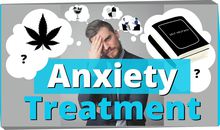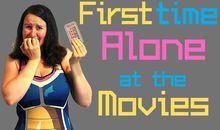Food and Mood
You are what you eat? How food can exacerbate stress and anxiety levels and its affect on mood.
It’s not uncommon to hear about the benefits of exercise and how it can help to improve mood, as well as reduce the symptoms related to stress and anxiety, yet there is often very little emphasis placed on the food we eat. Food has a big impact on our physiology and psychology! There is no definitive research just yet but there is an ever increasing breadth of research which indicates some interesting relationships about how food influences our mood. Some studies have shown that some foods make us feel calmer whilst other foods can act as stimulants – at least temporarily. Your probably thinking well why should give up food I love when there is yet to be any definitive research? Well it is known that dietary changes can bring about changes in our brain structure (chemically and physiologically) which can lead to altered behaviour. Therefore if you experience stress, anxiety, suppressed mood or panic attacks, making some modifications to your diet could help to alleviate the severity of your symptoms. There are a wide range of foods which have various effects on your body and mood, but we’ve chosen some foods you might consider adding to your diet and some foods you may consider removing.
Food to eat:
Turkey and Tryptophan
Some researchers believe that tryptophan can have a positive effect on stress because this amino acid helps your brain produce feel-good chemicals. "Tryptophan is a precursor to serotonin, and serotonin, a neurotransmitter, helps you feel calm." You will find tryptophan in a variety of foods: turkey, chicken, bananas, milk, oats, cheese, soy, nuts, peanut butter, and sesame seeds. However, there is some question about whether tryptophan found in food crosses the blood-brain barrier, so the effect is not going to be a dramatic one.
Beef and Foods Rich in Vitamin B
Studies have shown a relationship between the B vitamins, including thiamin or vitamin B1, and mood. A deficiency in B vitamins such as folic acid and B12 can trigger depression in some people. You can take a vitamin B supplement or eat foods that are rich in B vitamins to ward off anxiety. These include beef, pork, chicken, leafy greens, legumes, oranges and other citrus fruits, rice, nuts, and eggs.
Root vegetables
Carbohydrates also increase production of serotonin in the brain. When choosing mood-lifting carbs, go for the vegetable variety; rather than processed choices, such as sugar, lollies, white bread and white rice. Whole foods take longer for the body to break down, and release sugar into the bloodstream slowly. Processed carbs may give you an initial surge of energy, but that can be followed by an insulin rush, which rapidly drops blood sugar levels, ultimately leaving you feeling lethargic.
Salmon
Evidence continues to mount that consuming omega-3 fatty acids, found in fatty fish such as salmon, tuna, lake trout, herring, mackerel, anchovies, and sardines, can be uplifting and enhance your mood. Some studies have shown that patients who took omega-3 fatty acids along with their prescription anti-depressants improved more than those who took antidepressants alone. A possible side benefit is that Omega-3s have been said to help reduce the risk of heart disease.
Greek Yogurt and Other High-Protein Foods
Protein helps stimulate the production of the brain chemicals nor-epinephrine and dopamine, which, like serotonin, are neurotransmitters and carry impulses between nerve cells. Higher levels of nor-epinephrine and dopamine have been shown to improve alertness, mental energy, and reaction time. Good sources of protein include Greek yogurt, fish, meats, cheese, eggs, nuts, beans, soy, and lentils. The ideal combination for mood-boosting is believed to involve a combination of complex carbohydrates and protein, and well spread out meals throughout the day.
Foods to avoid:
Coffee and Caffeinated Drinks
Some people drink coffee and other beverages that contain caffeine (tea, cola, and hot chocolate) to help boost their energy levels. The problem is that caffeine has been shown to inhibit levels of serotonin in the brain, and, when serotonin levels are suppressed, you can become depressed and feel irritable. Caffeine is also a diuretic — it makes you go to the bathroom more often. Even mild dehydration can cause a drop in mood. Caffeine also can keep you awake, leading to stress and anxiety. Remember that you need to sleep well to be in a positive mood.
Lollies and Candy
Of course, almost everyone likes lollies! And they can make us feel better (including those containing sugar, honey, and corn syrup), but again it's a temporary lift. Here's why: Sugar is absorbed quickly into the bloodstream. The absorption causes an initial high or surge of energy. But that surge wears off as the body increases its insulin production to remove the sugar from your bloodstream. The result: You're left feeling tired and low.
Alcohol
Some people drink alcohol because it seems to ease stress and anxiety. Unfortunately, the good mood is only temporary. In the long run, alcohol is a depressant. Like caffeine, alcohol is a diuretic, and it's important to stay hydrated for a number of reasons, including mood. If you do drink, drink in moderation. If you have a small glass of wine at dinner, in health terms it’s not seen as over excessive, however if you’re going to sink 2 or 3 beers with dinner, it’s perhaps not the best idea.
Processed Foods
Could processed foods such as hot dogs, sausage, pie, and cakes cause anxiety or other mental health issues? Researchers from the UK found that eating a diet of processed and fatty foods increases the risk for depression. In the study, people who mainly ate fried food, processed meat, high-fat dairy products, and sweetened desserts had a 58 percent higher risk of depression than those who ate "whole" foods such as fish and vegetables. It’s perhaps best to reduce your intake of processed foods to a minimum or remove them all together.

In Summary...
Above is just a brief summary of some of the keys changes we can make to our diet in order to attempt to improve our mood. Obviously a change in diet won’t have the ability to suddenly stop depression or the anxiety you have experienced, but supplementary to psychological treatment, medication and exercise can certainly help! So whilst your enjoying your Christmas holiday this year, think about the foods you are eating and how you might be able to change your diet for the better. The benefits won’t just be felt psychologically you will also notice a big difference physically too.










